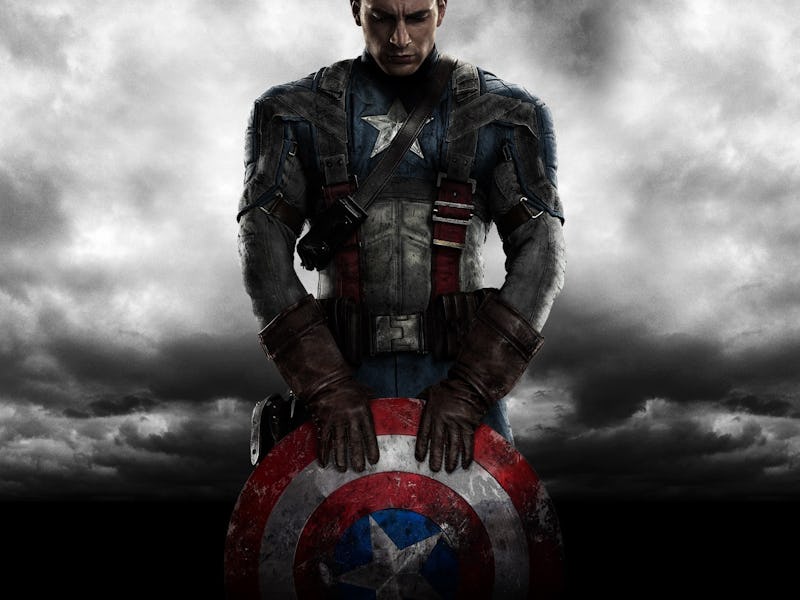Captain America's Marvel Cinematic Universe Story Is Dark, Sad, and Very American
Over the course of three films, Captain America is finally the complex, morally gray superhero he was meant to be.

Captain America, in his classic form, would seem to be as difficult a character as goody two-shoes counterpart, Superman, to sell to modern audiences. What can you do with a relic who believes in dated qualities like truth, justice, and freedom? Even his name seems incongruent with his values, thanks to an erosion of faith in government and reality TV star presidential candidates. Rather than ignore the context in which its audience lives, Marvel has made the cinematic Captain America confront these challenges head on. Over the course of three films, Captain America turned from idealist to fugitive rebelling against his government, and is made all the better for it.
Steve Rogers’ story from The First Avenger to Civil War is a journey with genuine surprises. In the first Captain America film, his character’s sunny optimism and dedication are easy to digest thanks to the movie’s 1940s setting. Believing in the American way is a great way to introduce your character when he’s fighting Nazi scientists hellbent on using magic to takeover the world. Rogers is introduced as a lovable underdog, whose genuine sincerity is a shining light in a dark conflict. Contrast that with the end of Civil War, when he’s got the world’s governments and half of his Avenger friends out to find him.
Captain America: The First Avenger
How did this happen? His second appearance, in 2012’s The Avengers, seemed keen on keeping Captain America’s virtues unspoiled. At a time when the nihilism of The Dark Knight was still all the rage among comic book fans, Marvel maintained course with Captain America, keeping his belief in absolute goodness intact.
Captain America: The Winter Soldier changed the course for Steve Rogers. The Winter Soldier turned the threat of a large, flying death plane into a broad metaphor for the United States’ role in drone warfare and NSA-sanctioned data mining. Faced with the realization that his own government might be undermining the virtues the US was supposedly built on, Rogers turned inwards. Rogers came out of The Winter Soldier a little more jaded and a little wiser than when he started. It wasn’t however, a catalyst to change his original ideals, which remained largely the same; the people running America failed, not the idea of America itself.
In Civil War, he decides to blow up the Avengers just so he could side with his brainwashed, murder-happy old pal. While it might not have been the best move for the Avengers as a team, it actually makes sense for Steve Rogers at this point in his post-cryogenic life. He essentially decides to fight for the good of one man, not the overall populace. His moral code is still ultimately virtuous and good, but the decision changes him from a character that was meant to protect the “American Way,” to someone who is willing to break away from the same expectations traditionally associated with Captain America.
Captain America: The Winter Soldier
It’s an understandable shift: he was frozen for decades and woke up to find that his idealistic outlook on the world is very outdated. Marvel deserves praise for finding pathos in his actual story rather than trying to force a dark and gritty reinterpretation on the character. What’s even more impressive is how naturally the studio progressed his character from the idealistic hero of his first two films, to the rogue at the end of Civil War. While he’s no Deadpool or Batman, Steve Rogers is decidedly not playing by any sort of rules anymore other than his own.
There’s no more American story than that of an idealist fighting his inner demons as the world grows more ambiguous and hazardous.
Unlike the recent interpretation of Superman which emphasizes his alien — and frankly sociopathic — tendencies, Captain America’s turmoil stems from the dissonance that is caused by the realization that perhaps he always viewed the world in a different way, even back in the 1940s. It only took the world growing more brutal over the course of 70 years for him to realize that he might never have fit in. That’s a far more sophisticated take on heroism than any sort of needless bloodshed.